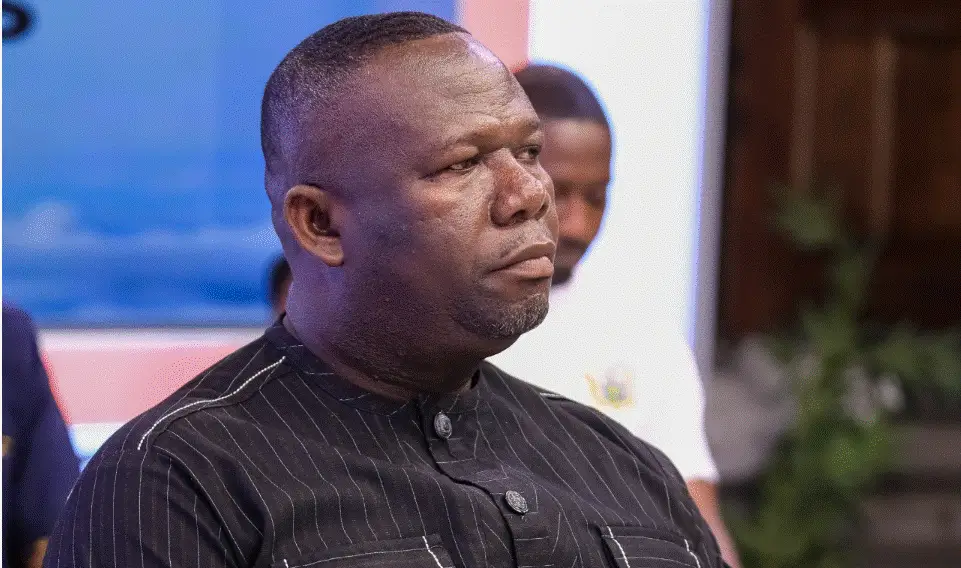The Deteriorating State of Healthcare in Ghana: A Call for Urgent Action
Ghana’s healthcare system, a critical pillar of national well-being, faces significant challenges that demand immediate attention and comprehensive solutions. The concerns range from the attitudes of healthcare workers to the dilapidated state of facilities and the inadequate funding mechanisms currently in place. A collective effort involving government, health professionals, and civil society is paramount to address these pressing issues and ensure quality healthcare for all Ghanaians.
One of the most alarming concerns revolves around the apathetic attitude exhibited by some healthcare professionals. Bright Amissah Nyarko, President of the NGOs in Health, has vocally criticized the prevalent "I don’t care" attitude, characterizing it as rampant within healthcare facilities. This apathy has profound implications for patient care, eroding trust in the system and potentially compromising the quality of services provided. Addressing this issue requires a multifaceted approach, including stricter enforcement of professional codes of conduct, enhanced training programs focused on patient-centered care, and creating a more supportive and motivating work environment for healthcare workers. Regular performance evaluations and mechanisms for addressing patient complaints can also help improve accountability and responsiveness within the system.
Further compounding the challenges, Ghana’s health infrastructure is in a dire state, particularly in district hospitals and Community-based Health Planning and Services (CHPS) compounds. These facilities, serving a majority of the population, are grappling with overwhelming patient loads that far exceed their capacity. This strain on resources leads to overworked staff, inadequate supplies, and ultimately, compromised patient care. Amissah Nyarko emphasized the urgent need for increased investment in these facilities, advocating for the allocation of more resources to expand their capacity and improve their functionality. This includes not only physical infrastructure upgrades but also investment in essential equipment, adequate staffing, and ongoing maintenance to ensure sustainable improvements.
Perpetual Ofori-Ampofo, President of the Ghana Registered Nurses and Midwives Association (GRNMA), echoes these concerns, lamenting the generally poor condition of health facilities nationwide. While acknowledging a few exceptions like the University of Ghana Medical Centre (UGMC), she points out the stark contrast with the majority of facilities, particularly those outside major urban centers. These facilities often lack basic amenities, functioning equipment, and even proper drainage systems, creating a demoralizing work environment for healthcare professionals and posing significant risks to patient safety and well-being. The inadequate infrastructure makes it difficult for healthcare workers to perform their duties effectively, further contributing to the declining quality of care.
The financial strain on health facilities exacerbates these challenges. Ofori-Ampofo highlights the reliance on internally generated funds (IGFs) as a major impediment to improvement. This dependence on IGFs, primarily derived from patient fees, creates a vicious cycle where underfunded facilities struggle to generate sufficient revenue for necessary upgrades and improvements. This financial constraint further limits the ability to invest in staff training, equipment maintenance, and the expansion of services, ultimately hindering the delivery of quality healthcare. The current system disproportionately affects vulnerable populations who may struggle to afford healthcare services, further widening health disparities.
A comprehensive overhaul of the healthcare financing system is crucial to address these systemic issues. Shifting away from the heavy reliance on IGFs and increasing government funding is essential to ensure equitable access to quality healthcare services. This requires a commitment to increased budgetary allocations for healthcare, exploring innovative financing mechanisms, and ensuring transparent and accountable management of healthcare funds. Furthermore, streamlining procurement processes and ensuring efficient resource allocation can maximize the impact of available resources.
In conclusion, the state of healthcare in Ghana presents a complex web of interconnected challenges that require immediate and sustained action. Addressing the issues of apathy among healthcare workers, upgrading dilapidated facilities, and reforming the healthcare financing system are crucial steps towards ensuring a robust and equitable healthcare system for all Ghanaians. This requires a collaborative approach involving all stakeholders, including government, healthcare professionals, civil society organizations, and the community at large. Investing in healthcare is not just an expenditure but a crucial investment in human capital and national development, paving the way for a healthier and more prosperous Ghana. The time for decisive action is now, to transform the healthcare landscape and guarantee quality, accessible healthcare for generations to come.


